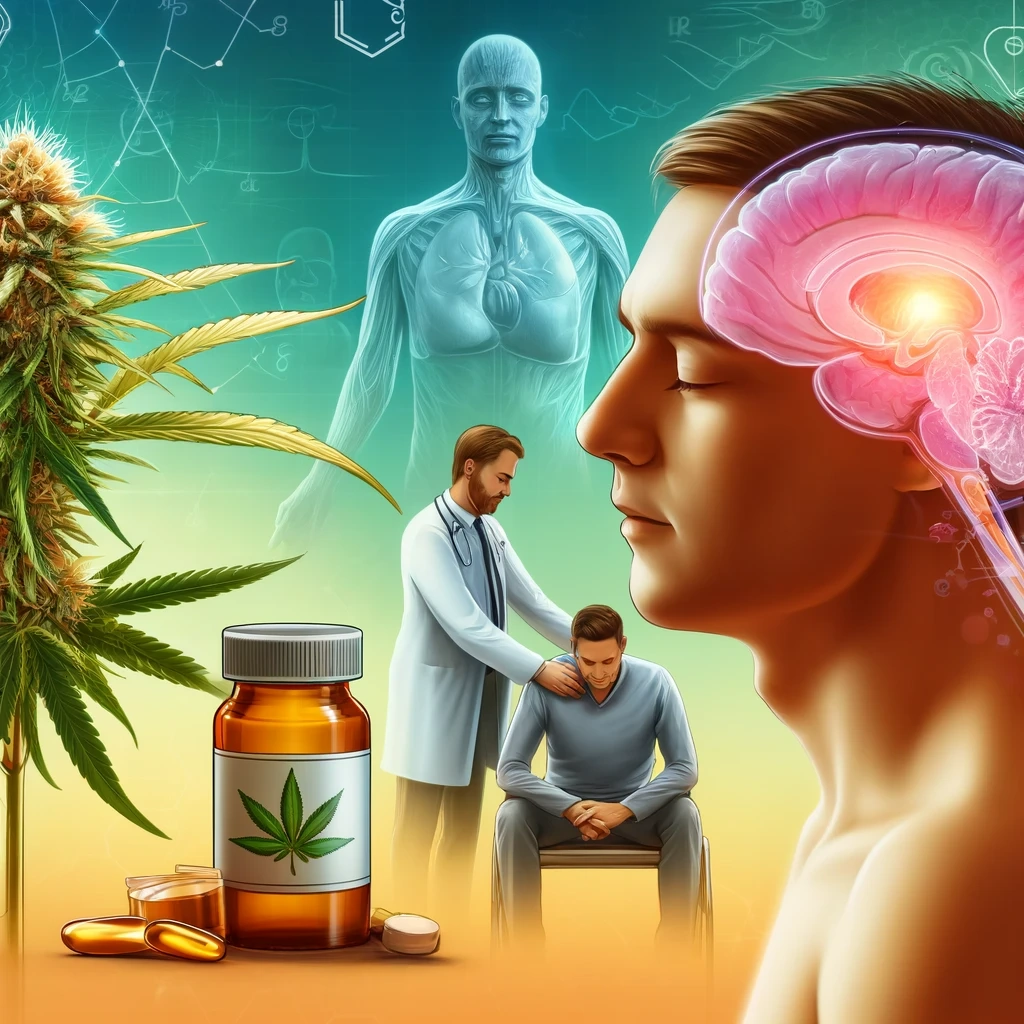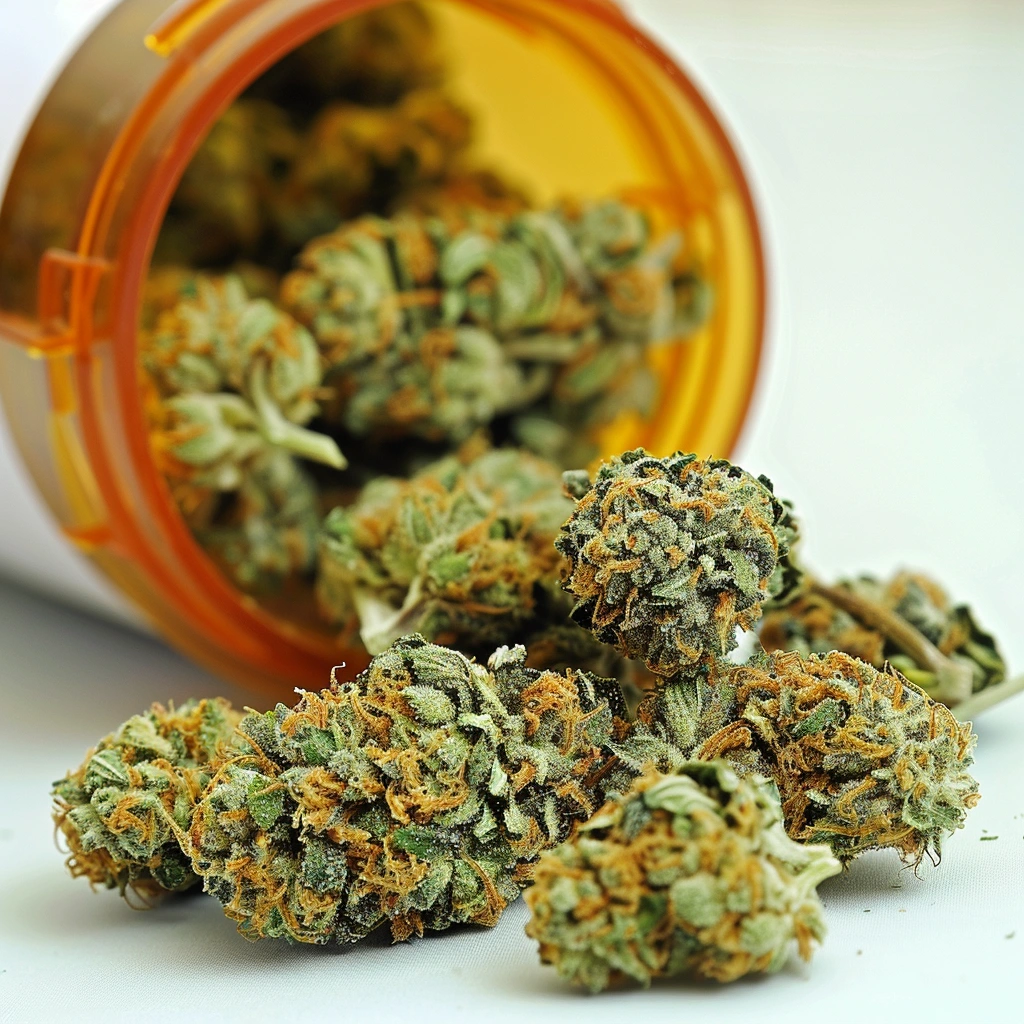Tourette Syndrome (TS) and other tic disorders are neurological conditions that manifest in sudden, repetitive movements or sounds that are difficult to control. These involuntary tics can significantly impact daily life, affecting social interactions, academic performance, and overall well-being. While traditional treatments, including behavioral therapy and medication, offer some relief, they often fall short for many individuals. In recent years, medical cannabis has emerged as a promising alternative or adjunct therapy, offering potential relief from the symptoms of Tourette Syndrome and tic disorders. This article explores the science behind cannabis, its therapeutic benefits, and its role in managing these challenging conditions.


Table of Contents
ToggleUnderstanding Tourette Syndrome and Tic Disorders
Tourette Syndrome is a complex neuropsychiatric disorder characterized by motor and vocal tics that typically emerge in childhood. The exact cause of TS is unknown, but it is believed to involve a combination of genetic and environmental factors, along with abnormalities in the brain regions that control movement.
The Spectrum of Symptoms
Tics can range from mild to severe and can include simple motor tics, such as blinking or shoulder shrugging, and complex tics, such as jumping or repeating words or phrases. These tics can be both physically exhausting and socially stigmatizing, leading to anxiety, depression, and other comorbid conditions.
Traditional Treatments: Limitations and Side Effects
Conventional treatments for TS and tic disorders include behavioral therapies, such as Comprehensive Behavioral Intervention for Tics (CBIT), and medications like antipsychotics and alpha-2 adrenergic agonists. While these treatments can be effective, they often come with significant side effects, such as weight gain, sedation, and cognitive dulling, and do not work for all patients. This has led to increased interest in alternative therapies, including medical cannabis.


The Science Behind Cannabis and Tic Disorders
Cannabis contains various compounds, known as cannabinoids, that interact with the body’s endocannabinoid system (ECS), which plays a crucial role in regulating motor control, mood, and stress responses. The two primary cannabinoids, THC (tetrahydrocannabinol) and CBD (cannabidiol), offer distinct therapeutic benefits that may help manage tics and other symptoms associated with TS and tic disorders.
THC: Reducing Tic Severity
THC is known for its psychoactive effects, but it also has potent muscle relaxant and anti-spasmodic properties. Research suggests that THC can reduce the frequency and severity of tics by modulating the activity of neurotransmitters involved in motor control. In a small-scale clinical trial, patients with TS reported a significant reduction in tics after using THC.
CBD: Alleviating Anxiety and Improving Quality of Life
CBD, while non-psychoactive, has been shown to have anxiolytic (anxiety-reducing) and anti-inflammatory properties. Anxiety often exacerbates tic severity, and by reducing anxiety levels, CBD can indirectly help manage tics. Additionally, CBD’s neuroprotective effects may offer long-term benefits for brain health.


Clinical Evidence and Patient Experiences
Although large-scale clinical trials are still needed, several studies and anecdotal reports indicate the potential benefits of medical cannabis for TS and tic disorders.
Research Findings
A study published in *Frontiers in Neurology* found that THC significantly reduced tic severity and improved overall quality of life in patients with TS. Another study highlighted the potential of a combined THC-CBD treatment to provide symptom relief without significant side effects. These findings suggest that cannabis could be a viable treatment option for individuals with TS who have not responded well to traditional therapies.
Patient Testimonials
Many patients and caregivers report positive outcomes with medical cannabis. They often describe a noticeable reduction in tic frequency and severity, as well as improvements in sleep, mood, and social interactions. These testimonials underscore the potential of cannabis to enhance the lives of those living with TS and tic disorders.
Integrating Cannabis into Treatment Plans
Incorporating cannabis into the treatment of TS and tic disorders requires a personalized approach, considering the specific needs and responses of each patient.
Personalized Treatment Strategies
Effective cannabis treatment involves selecting the right strains, cannabinoid profiles, and dosages tailored to the individual’s symptoms and overall health. A balanced THC:CBD ratio may be optimal for many patients, providing therapeutic benefits while minimizing psychoactive effects.
Methods of Administration
Cannabis can be administered in various forms, including oils, tinctures, edibles, and vaporized products. Each method has its advantages; for example, oils and tinctures allow for precise dosing and quick absorption, while edibles offer longer-lasting effects. Vaporized products provide rapid relief, which can be beneficial for acute tic episodes.
Challenges and Future Directions
Despite its promise, the use of medical cannabis for TS and tic disorders faces several challenges, including legal restrictions, variability in product quality, and the need for more comprehensive research. Advocacy and education are crucial in addressing these challenges and expanding access to cannabis-based therapies.
Legal and Regulatory Barriers
The legal status of medical cannabis varies widely across regions, affecting accessibility for many patients. Continued efforts to reform cannabis laws and promote research are essential for overcoming these barriers.
The Need for Rigorous Research
While anecdotal evidence is valuable, large-scale, placebo-controlled clinical trials are necessary to establish the efficacy and safety of cannabis for TS and tic disorders. Ongoing research will help refine treatment protocols, dosage guidelines, and cannabinoid profiles tailored to the needs of individuals with TS.
Conclusion: A New Frontier in Tourette Syndrome Treatment
Medical cannabis offers a promising alternative or adjunct therapy for individuals with Tourette Syndrome and tic disorders, providing potential relief from tics and associated symptoms. As research advances and societal acceptance grows, cannabis is poised to play an increasingly important role in the management of these challenging conditions, offering hope and improved quality of life for patients and their families. Embracing this natural therapy, we move closer to a future where individuals with TS can lead more fulfilling and less stigmatized lives.
FAQ: Medical Cannabis for Tourette Syndrome and Tic Disorders
How does medical cannabis help with Tourette Syndrome and tic disorders?
Medical cannabis helps manage Tourette Syndrome (TS) and tic disorders by interacting with the endocannabinoid system (ECS), which regulates motor control, mood, and stress responses. Cannabinoids like THC and CBD can reduce the frequency and severity of tics, alleviate anxiety, and improve overall quality of life.
Can cannabis cure Tourette Syndrome or tic disorders?
No, cannabis does not cure Tourette Syndrome or tic disorders. It is used to manage symptoms and improve quality of life, but it does not eliminate the condition.
What symptoms of TS and tic disorders can cannabis help treat?
Cannabis can help treat several symptoms of TS and tic disorders, including:
- Motor and vocal tics
- Anxiety and stress
- Sleep disturbances
- Aggression and behavioral issues
- Overall quality of life
Are there specific cannabinoids that are more effective for TS and tic disorders?
THC is effective in reducing the frequency and severity of tics due to its muscle relaxant and anti-spasmodic properties. CBD is beneficial for its anxiolytic (anxiety-reducing) and anti-inflammatory effects, which can indirectly help manage tics by reducing anxiety levels.
What is the best way to use cannabis for TS and tic disorders?
The best method of administration depends on the individual's symptoms and preferences. Common methods include:
- Oils and Tinctures: Offer precise dosing and quick absorption, suitable for managing acute symptoms.
- Edibles: Provide longer-lasting effects, beneficial for maintaining symptom control throughout the day.
- Vaporized Products: Offer rapid relief, suitable for acute tic episodes.
How do I determine the right dosage of cannabis for TS and tic disorders?
Starting with low doses and gradually increasing based on the individual’s response is a common approach. It is essential to work with a healthcare provider experienced in cannabis medicine to determine the appropriate dosage and monitor effects.
Are there any risks or side effects associated with using cannabis for TS and tic disorders?
Potential side effects include dizziness, dry mouth, cognitive impairment, and, in some cases, anxiety or paranoia, particularly with high doses of THC. It is crucial to use cannabis under medical supervision to manage these effects and ensure safe treatment.
How do I start using cannabis for treating TS and tic disorders?
Start by consulting with a healthcare provider experienced in both TS and cannabis medicine. They can help determine the appropriate strains, dosages, and administration methods based on the individual’s specific symptoms and overall health condition.
Can anyone with TS or tic disorders use medical cannabis?
While many individuals with TS or tic disorders may benefit from medical cannabis, it is not suitable for everyone. Individuals with a history of psychosis or adverse reactions to cannabis should avoid it. Each case should be evaluated individually by a healthcare professional.
Is medical cannabis legal for treating TS and tic disorders?
The legality of medical cannabis varies by location. In regions where it is legal, you typically need a prescription or medical cannabis card to obtain and use it legally. Always check local regulations and consult with healthcare providers for guidance.
What should I consider before choosing cannabis as a treatment option for TS and tic disorders?
Consider the legal status, potential side effects, the individual’s current health condition, and how cannabis might interact with other medications. Discuss these factors with a healthcare provider to determine if cannabis is a suitable option for your treatment plan.
These FAQs provide a comprehensive understanding of how medical cannabis can be integrated into the treatment of Tourette Syndrome and tic disorders, highlighting its potential benefits and necessary precautions to optimize patient outcomes.

